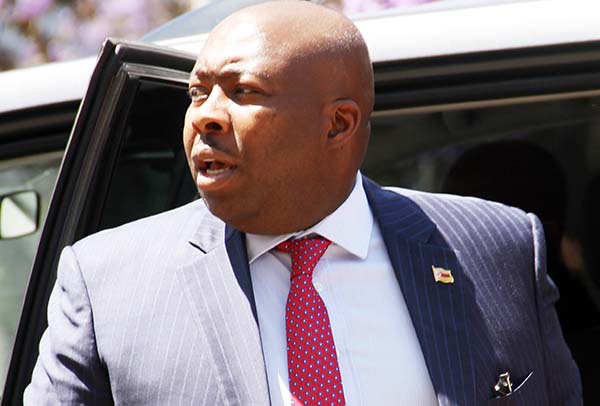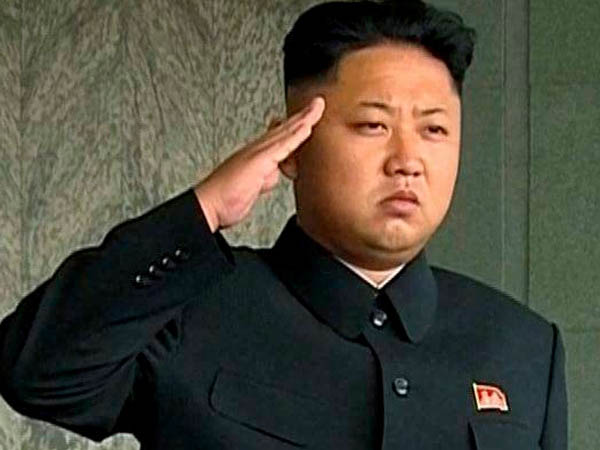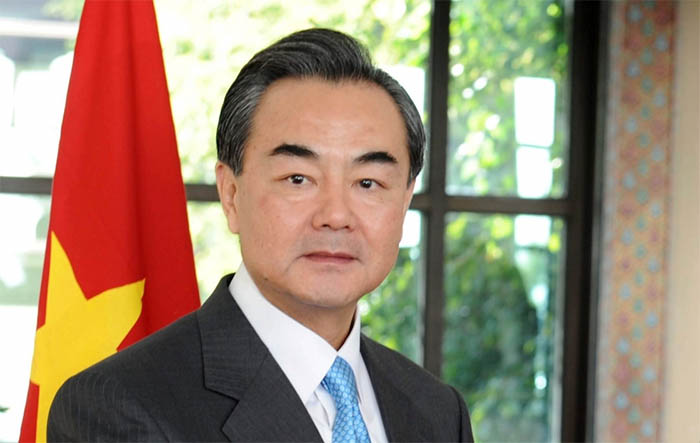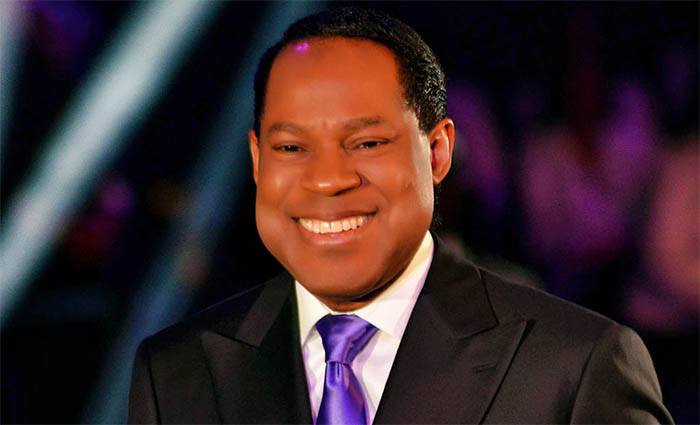![GENERAL CHIWENGA . . . We will not have our Commander-in-Chief being belittled by nobodies, who never commanded any battle]()
GENERAL CHIWENGA . . . We will not have our Commander-in-Chief being belittled by nobodies, who never commanded any battle
Gen Constantino Guveya Dominic Nyikadzino Chiwenga
The majority of war veterans have nothing to do with this nonsense that we are now getting daily in our media.
The ones who are now championing themselves as the war veterans are members of an association which emanates from way back in the time of Hunzvi.
This is when the party and Government said those who want to be together — you want to have your grinding mill or you want to go and till the land which we fought for — you can come together and put your resources together and help yourselves.
You cannot stand akimbo and say, “No, because I was out in the bush then I must be fed while doing absolutely nothing.”
During the war that’s what we were saying: self-reliance. Whether out in the camps where we were, whether in Tanzania, in Zambia, in Mozambique, wherever we were, we were self-reliant. And this is the same concept which led to the formation of the war veterans association. It’s an association, an NGO.
In the war veterans association, there are no gurus of the liberation struggle. The party, the commanders and the leadership, said this is a good thing — let these youngsters help themselves. If the Government can assist it will do so. I am talking on behalf of the Defence and Security Services of the country; and besides that, on the Zanla side, I am the surviving most senior commander. And I am not in the association.
But when they go out there they talk as war veterans. They must talk as a war veterans association. But who are these people? What were they during the struggle that makes them think that they are now more revolutionary than Zanla and Zipra at the height of war?
What role did they play?
If they understood the political teachings — that the party commands the gun and not vice versa, that everyone must respect the leadership — they should know that today in Independent Zimbabwe we must all respect the leadership both in Government and in the party.
We don’t talk about the opposition political parties that we liberated so that they can also have their own voice, we do not talk about them. Let them do their own business there. We are not interfering with them.
If we had wanted we would have said “No, there is not going to be any opposition, we liberated the country, where were these people?”
But even if you crossed the border, the border was crossed by genuine people going for the liberation war, and by some who had nowhere to go; they were either thieves or robbers and the only option was to cross the border.
As the liberation movements we were taking all these people, putting them under the same tree and giving them political orientation to say “no, this is not the way Zimbabweans behave, this is the way we want to liberate ourselves”.
We had two national grievances; we want to be independent like any other African country, like any other country in the world and second we must have our economic emancipation of which land was at the core.
These were the two major grievances that drove everybody under the leadership of the liberation movements.
So what is now happening here?
First of all let’s be clear that what some of these people are saying is absolute nonsense because these are people who we do not even understand what role they played. There are war veterans who played a part across the width, length and breadth of the country.
We’ve got comrades, great fighters, like Herbert Shungu, we’ve got fighters like Chinodakufa, Joseph Muzhamba or Khumalo — I’m just naming a few. We’ve got across, starting from Manicaland, people like Mapungwana. I don’t think you’ve ever heard of him. He was the provincial logistics (head) of that province.
We’ve got people like General Nyambuya, who was at the sectoral level. We have got quite a lot of commanders: Henry Muchena, Shumba — you’ve never heard them making noise? They are out there.
We have got a lot of members of the High Command in Matabeleland. People like Nleya. They are there. They were quite senior, but you have never heard them saying anything.
So who are these? Ava ndivanani ava? Vakango crosser ku Mozambique kana ku Zambia, nhasi ndoovava shasha dzehondo? Kupi kwacho kunoitwa zvinhu zvakaita seizvozvi? Zvichiratidza chimiro chipi? Zvichiratidza hunhu hupi?
Kana pamusha chaipo panoberekwa, ndepapi pawakamboona pwere pamusha ichinotuka baba vayo kana mai vakaibereka? Nhasi ndiwe wava kuziva hungwaru kupfura baba vakakubereka, kudarika mai vakakubereka: wakazviwanakupi zvinhu zvakadaro?
Zvinobvepi?
This unbecoming behaviour shows that they were never cooked properly and they never understood what they stood for and what the revolution was all about. Paunobika nyemba, kunoita twunhire twekuti kana dai nyemba dzikasvika kuti dziite, soup dzese dzapwanyika, iko kanenge kachingotamba chete kari pamusoro pemvura.
Nyangwe kakapihwa huku kanongobuda kakadaro, haka digistiwe aiwa. Zvinowanikwa izvozvo. Apa ndipo patinoti ava vana ava vagara pfumo vachida kuridza ngoma nedemo — hapana chinofamba. Pfumo harigarike, ngoma hairidzwe nedemo.
Vazvizive kubva nhasi izvozvo, kuti hazviitwi.
Zvikuru sei munyika ino iyi ine ropa riri kuerera, ine vana vatakasiya Mozambique, ine vana vatakasiya Zambia, ine vana vatakasiya Angola, ine vana vatakasiya kwese kwataitrainer — ingava Tanzania, ingava Egypt, takasiya vanhu — zvikuru sei mukati menyika inonzi Zimbabwe iyoyo, hakuna kusina ma mass graves munyika iyoyi.
Vanhu vakakandwa mumigodhi, vamwe vachipiswa iri nguva yehondo, nekuda kwenyika yavo, munhu onomira otaura nonsense ipapo?
Ndivo vataiti nguva yehondo, aiwa, ava ndoo maquislings ava, fence sitters, people who do not understand criticism. Marairwa kuti izvi hazviite. When you are told that this is not done, it must then sink in your heart and mind so that you then are able to separate what is wrong and what is right.
If you have a grievance, there are ways of talking and discussing and talking about the grievances. His Excellency the President of the Republic, who is the Head of State and Government, and also in his capacity as the Patron of all war veterans — not association (of war veterans) — he called them on the 7th of April last year.
He said give us what you want, and he listened. Then you get now these people jumping around. Vamwe vacho we know they were drivers (during the war), vachiunza chikafu kunana Mozambique. Hondo yaakaona kuona kuchibhombwa macamp, iye ochidzoka hake and now ofamba achitaura kuti akarwa.
Tomubvunza kuti name one battle yawakarwa, yawakatungamira iwe? None. Saka hondo yaurikutara urikutaura ipi?
This must now stop, or we are going to send them to where they belong. If they want to remain as part and parcel of those disciplined, loyal, patriotic cadres, they must now understand that it is the party, it is the government that sets the direction.
The party commands the combatants and not vice versa. Hakuna mwana akagara nhaka, kana kutora tsvimbo dzababa, ivo baba vachiripo. Ndinodzokorora zvekare, ukadaro uri kugarira pfumo uchida kuridza ngoma. Handizvo?
Some will ask why I am speaking about these issues, they will talk of separation of the military from politics in the Constitution. I went to the struggle — that will not change. You cannot change history. We went out there. We are also cadres. We rose through the ranks.
I am not only Commander of the Defence Forces, but also I was their commander there in the struggle. And the defence of this country, the security of this country — because the security services, be they the President’s Department, be they the Police, be they the Prisons and Correctional Services — they are combatants.
These are the commanders who commanded them. It does not change, you cannot rewrite history; history remains as it is. Here we are talking about how people, more specifically combatants, must behave. They are supposed to be role models to the rest of society.
Hakungoitwa danga watonga. That’s not what we call democracy. Democracy has discipline and must never turn into anarchy. You have to remain principled. Ndiwo hunhu. Ukashaya hunhu unenge waita mhuka ka? Even animals, there is a bit of order, right?
So having said all these things, who is this President Robert Gabriel Mugabe that they are talking about, who is a role model for every leader worth his or her salt, who is a role model for every combatant worth his or her salt?
He left everything he had and joined the nationalist struggle during those early days of one-man one vote. He reached the point where he found that these people he was talking to don’t understand. The only thing they could understand was the same weapon they were holding to suppress our people.
Mueni auya mumusha ochinditaurira kuti “Bedroom yako iripi? Ndokwandiri kunorara ikoko”. Mangwana oti “Bhuru rako guru repano pamusha, chindibayira ndiri kuda kudya”.
Iwewe saani wauya uri mueni? So ava vaeni vakange vauya mukati menyika ndoo kutigarira matunduru.
Pakarwiwa hondo yemapfumo nemiseve, matateguru edu akundwa, 1893, kubva pana King Lobengula. Zvikauya vana Mbuya Nehanda naSekuru Kaguvi, mitsipa yanerera vakarembedzwa muna Tongogora muya.
Vana Mashayamombe vakaparara. Ikauya uku, anonzi ani uyu wepaMakoni uyu? Chingaira, wakaparadzwa. Tirikungotaura vamwe, vakawanda. Kwanga kuine shasha dzakawanda.
Kunosvika yabuda kuna Munyarare, akachekwa kwaMutare. Wokupedzisira ndiKadungure Mapondera akaurayiwa 1904 kwaMutoko. Ndozvinhu zvakapa, mushure me 60 years pakanzi mapfupa achamuka, after the 60 years ndoopakasimuka zvakare the nationalism.
You know where the President was. Together with others, vamwe vakatiza, vamwe vakaramba. Vamwe wavakapinda navo, kuti takunotanga hondo, ndoo pakadedera vakawanda vakati hatichazvikwanisa izvi.
Vakapinzwa mumajeri. Kutorerwa your freedom, even for one day, unosara wadonha usisiri munhu. What about wapinda 10 years? We had our first group that trained kunana Ghana, kunana Soviet Union. Then the party split.
There was no leadership yanga ine cohesion. That led to Chitepo being recalled from Dar es Salaam to go to Zambia to form Dare reChimurenga. Kuside kweZapu kwanga kuina Ziyapapa Moyo, nana Chikerema, akazotiza.
Hondo yakasimuka. Leadership yanga iri muprison ikabuda. Havana kungogara, vakasimuka anaTekere vachienda kusango knowing kuti he might not ever return, and knowing kuti anokwanisa kufa. But akasvika akanogara as a refugee.
Very few people vakange vachiziva kuti Secretary-General ndiani pavakangonzi chiendai zve nekuti Chitepo afa, but vakasvika vakonovarirwa kuMozambique. Vakazo pedzisira vave kunanaNampula uko.
Right.
He went through all the difficulties, saw vana vachitambudzika, but he never changed. Vana Sithole vakange vatiza. Nevamwe zvino vavakuzviti vanoziva, tafunda sitereki, tava maprofessor — vakatiza hondo iyi.
Nhasi ikozvino izvi they now know. But the President did not leave.
Leadership ichibuda kuZambia, vaye vakange vasungwa, hondo ichisimuka because the doors had been flung open by President Samora and Frelimo at the Independence of Mozambique, ndoopakazosimuka vamwe vakawanda vachienda kuhondo, handiti.
Mukati mehondo vanhu vakafa nekushaya chikafu, vakafa nezvirwere. Pamberi apo pakazofiwa zvakakwana nekubhombwa: zvichinzi kukabhombwa Mozambique, kwobhombwa Zambia; kukabhombwa Zambia, kwobhombwa Mozambique.
Until the Rhodesians vagadzira landing space yavo between Victoria Falls and Hwange. Pakati apo pane landing space inomhara majets muroad muya, but imi munongofamba musingazive kuti this is an “airport”. Vakasimuka kubva paye vakaenda kunobhomba ku Angola.
But VaMugabe vakaramba vakashinga. Varungu vachinosvika kunana Maputo vachitsvaga. But he remained resolute.
Our late First Lady vakarwara tiri muhondo. Vakapuhwa kuti havasvike makore akati. He never changed his principles. She was fortunate vakaona Independence. He remained resolute.
So he achieved the first objective of bringing Independence, that now Zimbabwe could be counted as one of the independent countries of the world.
People forget that when we got our Independence there was a difficult decision for our leaders, the few of them vakange vadeedzwa. I cannot say the names now. Kuti, no, let’s not take our land right now, because remember, we had said we want our political independence and we want our economic emancipation, in which land was at the core.
President Nyerere, President Kaunda, President Samora said if you take the land now, then there will be bloodshed in South Africa and South Africa will not be able to get its independence.
Say this and people think it was cowardice or that we had forgotten about the principles of the struggle. But we had to wait. And it was through the President’s tact that we never left that. South Africa got its independence in 1994.
You will remember that people were going onto the land and we were moving them out; Defence and Security were moving them out. But the moment South Africa got her independence, the second issue of why we picked up arms came back into play.
The issue of land was the most difficult to fight because it is a war without a front and without a rear: pauri ipapo ndipopanotangira hondo yacho ichiperera ipapo. Hakuna kwaunotizira uchiti ndichambodzekera kurear kunokoka masimba — unorwa ipapo.
We were sitting there in the JOC (Joint Operations Command) with people, some of whom were ambivalent. And the President was telling them, munoziva here kuti ticharambidzwa kuenda kuEngland, kuAmerica, ku any European country?
You know Europe ndiyo yakange ine maempire. Go back to 1884, when they went to Berlin, when the Europeans gathered from December kusvika musi wa 13 February (1885) pakasainwa the Treaty of Berlin.
Every European country was represented. They signed the Berlin Treaty. The one non-European country that was there in Berlin, and whose attitude you must now understand, is the United States of America.
A lot of people don’t understand why it involves itself in our affairs — it was there in Berlin. Denmark signed on behalf of the Nordic countries. America also came in when they brought our brothers and sisters who had been shipped as slaves back to Liberia. This is why Liberia flies the United States flag.
The British, after all these treaties, then came to Sierra Leone with Freetown. So you can understand what is happening. And with land you are getting to the bone marrow of the former imperial powers. Hakuna akambotorera murungu munda, handiti? Kwese kwavakaenda uko, hakuna kumboitika sezvakaitika kuno.
Our President said; “This is right, this is what the people of Zimbabwe fought for, and in their thousands they perished. What are we going to say to those people who are lying in unmarked graves?”
So we had to take back the land. Vamwe, you heard President Geingob saying a lot of leaders say President Mugabe is right, but kuti vataure zviri open, vanotya. But President Mugabe is fearless.
So he satisfied the second objective of our liberation. But land alone is not enough, you must take the natural resources. What was bestowed to us under the land between the two rivers of Limpopo and Zambezi belongs to us. And that’s where people were now misinterpreting indigenisation.
It means we the people of Zimbabwe control our natural resources. You saw the effects. A lot of people from the imperial powers came with their pieces of paper backed by banks in Europe saying they had a claim to, for example, resources on the Great Dyke.
They said bepa renyu iri ndipei mari yangu, and that had its own effects. Taakuzvitaura hedu, I don’t give a damn. So this is why muchinzwa kuti hakuna munhu akataurwa kuti you are interfering with our national interests except President Mugabe.
Toita interfere nenational interests dzeAmerica papi? It is because President Mugabe stood for the present generation and for generations to come, kuti this must be taken. And when we are taking we are not saying we are not going to co-operate with other countries, but they must come here as partners, on our terms, on a level playing field, where the people of Zimbabwe benefit from the God-given natural resources.
That was the third thing coming from that man called President Mugabe. Then he said now, having all this, if you are uneducated, you are not going to be able to run all this, to run your economy, to develop that economy.
He went ahead against all odds. The World Bank, the IMF came and said never has it happened anywhere that you educate all the people, a few must be educated, Government must not waste money educating everybody, if the parents of that individual cannot educate him or her, then so be it.
But President Mugabe stood firm and said it is the role of Government, it is the right of every child to go to school.
Up to today, every child goes up to Form Four. Yes others might drop out, but those are a few. Everyone who has been enrolled must at least get to O-Level. They must go so that at least even if they fail Form Four they are able to read, they are able to write, they are able to understand even a news report, they are able to make an interpretation.
So Zimbabwe is now number one on the African continent in terms of education. It is because of that man. The fifth issue is instilling discipline, loyalty, patriotism and above all, hunhu hwedu, kuti isu tinombova chii? And making sure that, matters of principle are never compromised no matter what; rain or thunder never compromise on principle.
And you can tell me where the President has ever compromised on his principles. So who are these now who want to tell us that they are supernatural beings, maybe from Jupiter — what is it that they have done?
Singing? You can sing even in discord unongonzi waimba, handiti? But tinoda rwumbo rwakati swatanhu kusvika uko. And so that’s why we have said to these combatants who have gone astray, come back now while there is still sunshine. Yakazotaurwa kuti make hay while the sun still shines.
It is not too late for those who can hear. But speaking on behalf of the Defence and Security Services of the country, this nonsense must now come to an end. We will not have our Commander-in-Chief being belittled by nobodies, who never commanded any battle.
All they know is to go out and then return without firing a shot. Ko, vakaenda Wenela handiti munenge makangofanana? Ngatiregei kudaro. We left people out there, they were commanders of Zanla and Zipra and they never saw Independent Zimbabwe — they perished out there. Some of those who led the war, they perished out there. Some of the greatest sons and daughters, the greatest fighters, they perished out there.
They are in unmarked graves. Unomboti ko iyi ngozi yabvapa kupiko? Zvino kana iri ngozi yekumusha kwenyu, endai munobika mabira kumisha kwenyu, musaise ngozi mukati menyika.
That will not be tolerated. Kana kuri kumusha kwenyu endai munogadzirisana ikoko. Kwete kutora ngozi kumusha kwenyu moita kuti dziite sedzava ngozi dzenyika. What power does he have iye Mahiya iyeye yekuti tinoisa ex-combatant, ndeupi ex-combatant waanga achitaura ipapo?
So the people of Zimbabwe must know that there is a difference between war veterans and an association.
The above is excerpted from an interview by The Herald Editor Caesar Zvayi and The Sunday Mail Editor Mabasa Sasa with the Commander of the Zimbabwe Defence Forces General Constantino Chiwenga in Harare on May 1, 2017.



























